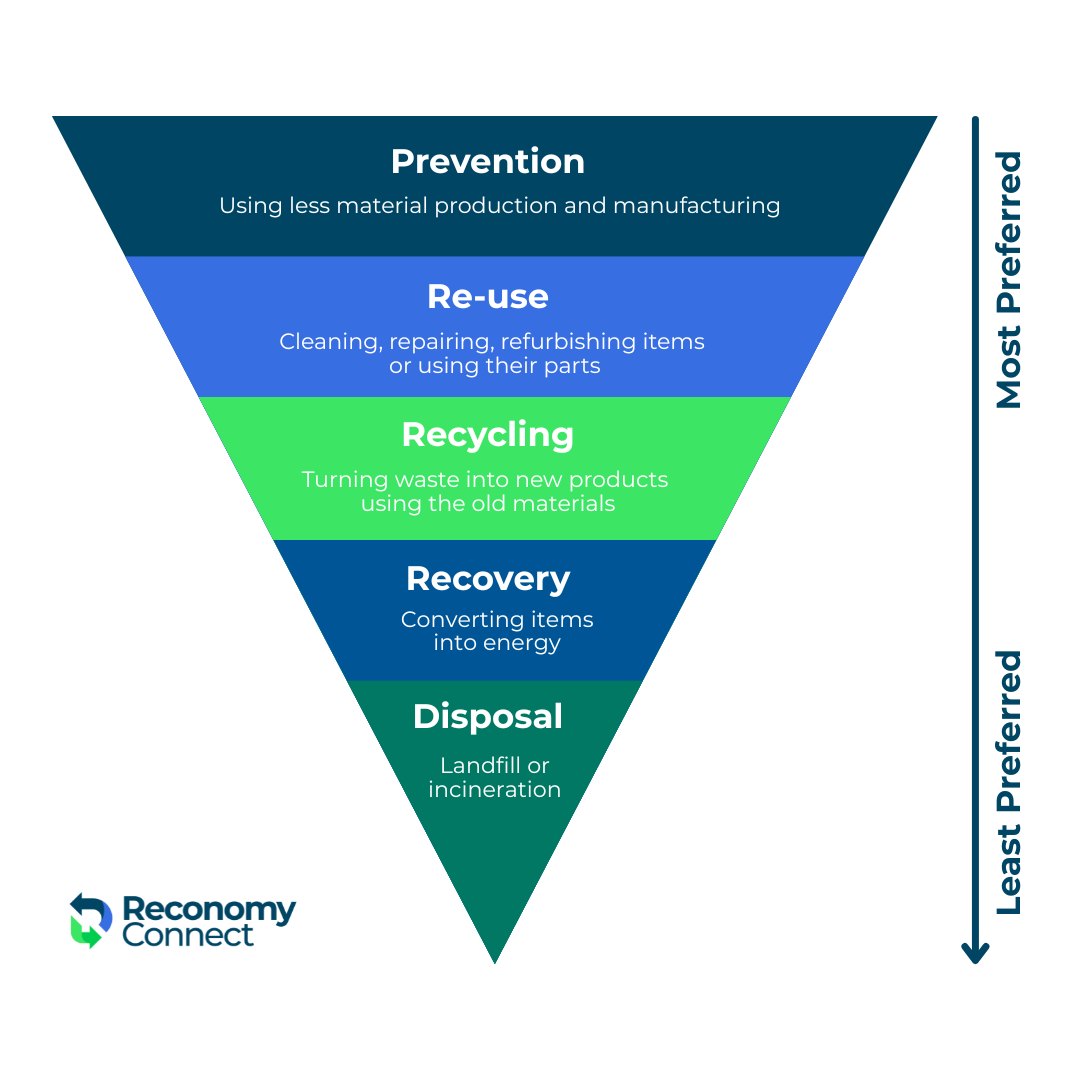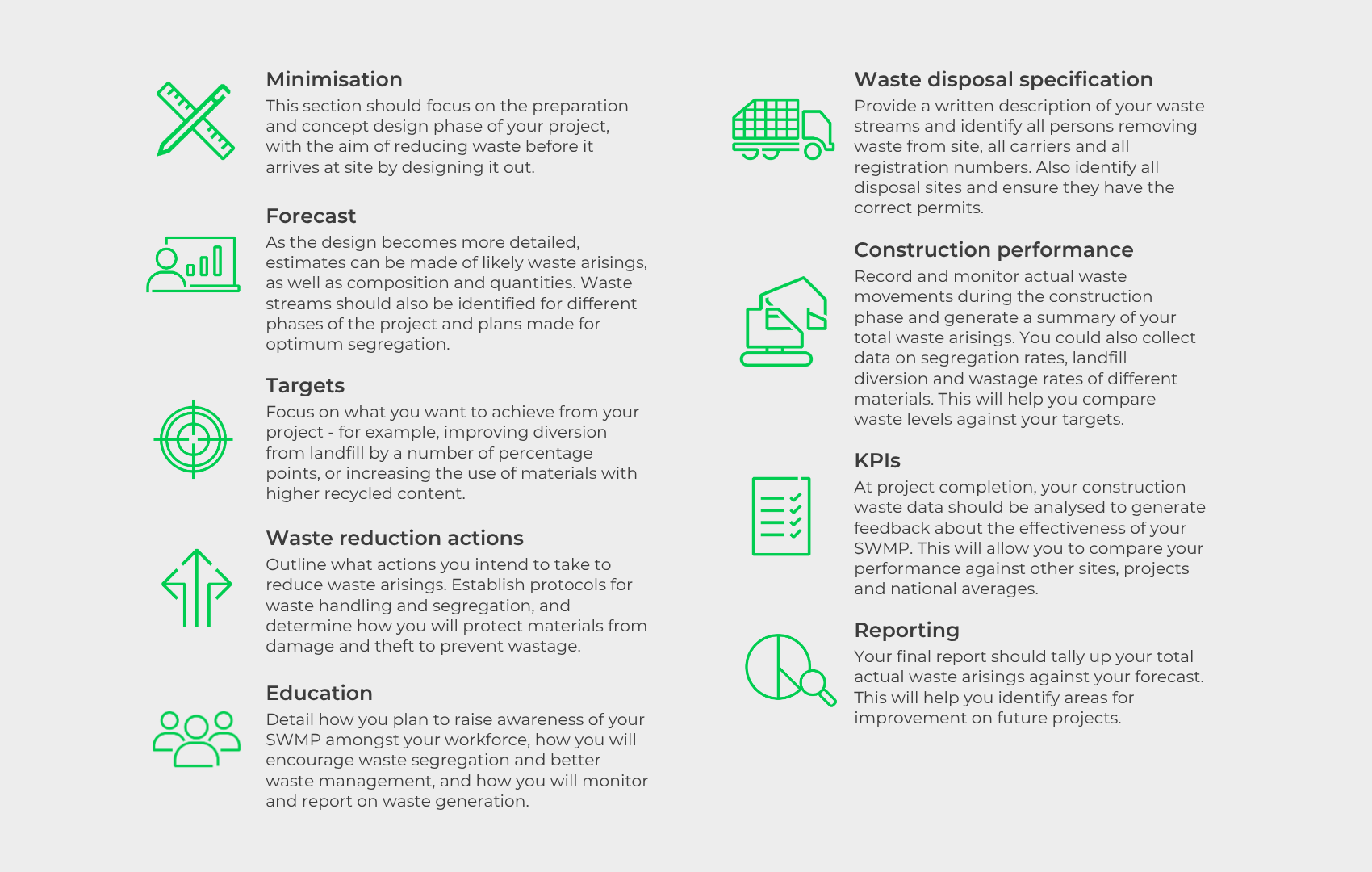What is the true cost of waste in the UK construction and housebuilding industry?
Understanding the true cost of waste is complex, influenced by multiple factors across the construction lifecycle. The UK construction and housebuilding sector is the engine behind much of the country’s physical and economic infrastructure. But behind the scaffolding and cranes lies a growing and often underappreciated issue: waste.
Not just physical waste piling into skips, but wasted materials, time, labour, and money, all of which silently erode project margins and increase environmental impact.
So, what is the true cost of waste? It’s far more than the price of skip hire!
The scale of the problem
On the 23rd of July 2025, the Department for Environment, Food and Rural Affairs released their latest report on the UK statistics on waste:
- In 2022, it is estimated in England, 63.0 million tonnes of non-hazardous construction and demolition (C&D) waste was generated and from that, 59.4 million tonnes were recovered.
- Thus, approximately 3.6 million tonnes of this waste were sent to landfill.
Landfill tax has recently risen by over 20% and will only continue to rise in the next few years. Alongside this, the 2028 carbon emissions trading scheme (UK ETS) will change how the UK’s carbon pricing strategy works.
Why is waste management important?
Effective waste management is essential for:
- Reducing environmental impact
- Conserving valuable resources
- Minimising project costs
Construction sites generate multiple waste streams, from materials like concrete and timber, to packaging and hazardous substances. All of these can strain landfills and damage ecosystems if not handled responsibly.
Everyone on a construction site, from managers to workers, play a role in ensuring waste is minimised and managed properly. Communication and training are essential to achieving this, as they ensure that each team member understands the goals and procedures outlined in the Site Waste Management Plan. Clear communication fosters a shared sense of responsibility, while training empowers workers with the knowledge to sort, store, and dispose of materials correctly, contributing to recycling and waste reduction goals.
We can provide onsite training, and helpful toolbox talks videos to help ensure everyone on site understands best practice for waste management to improve areas where large amounts of waste are generated and how to help minimise wasted resources.
By fostering a culture of accountability and collaboration, construction teams can make a meaningful difference in reducing the environmental footprint of each project.
What are the hidden costs associated with the UK Construction and Housebuilding industry?
Efficient waste management, including reducing waste and reusing materials can lead to significant cost savings and other benefits.
Hidden costs at your site can be:
- Wasted materials
- Labour inefficiencies
- Project delays can increase costs
- Missed recycling rebates
- Procurement inefficiencies
- Operational inefficiencies such as inefficient skip utilisation
- Reputational damage such as client dissatisfaction
- Regulatory non-compliance such as fines and legal action
- Poor data reporting such as lack of visibility and weak ESG reporting
Designing out waste
We are committed to delivering sustainable resource management solutions by focusing on prevention and promoting a circular economy by utilising our extensive supply chain.
Our aim is to move our customers up the waste hierarchy, delivering tangible social, commercial and environmental value.

Reducing on-site waste, benefits both your business and your clients by cutting costs and enhancing sustainability:
- Reducing material purchase and waste disposal costs will save you money
- Meeting client requirements for waste generation, reuse or recycling
- Demonstrating you are an informed contractor and enhance your reputation
According to the Waste & Resources Action Programme (WRAP), waste disposal costs at a recent construction project reduced by 66% through correct and consistent segregation and reuse. This included using 25% fewer skips through ensuring they were loaded correctly.
The power of a Site Waste Management Plan
Creating and implementing a Site Waste Management Plan (SWMP) is considered best practice. A well-structured SWMP helps reduce waste costs and improve the management of waste across your construction site.
An effective SWMP:
- Makes it easier for the workforce to follow waste management best practice.
- Improves resource efficiency.
- Increases profitability by maximising reuse, recycling and recovery of waste.
As a minimum, an effective SWMP should address:

Reducing the true cost of waste
The true cost of waste involves looking at a variety of factors such as economic and environmental issues. It isn’t just the cost of disposing of waste, but also the cost of each stage during the supply chain like manufacturing, procurement and labour costs.
At Reconomy Connect, we help you adopt a more circular business model to effectively manage your waste and reduce costs:
- We conduct site analysis surveys, to gain a clearer understanding on varying waste streams at site and the quantities of waste generated.
- We manage all of your waste streams to simplify your operations, reduces haulage costs, increase transparency over waste volumes and rebates and supports ESG compliance and reputation.
- We provide staff training on-site to help with segregation of waste and implementing best practice such as ensuring a skip is at full capacity and loaded correctly to minimise wasted space which raises cost.
- We use our specialist reporting software, The Reconomy Connect Portal, to gain a deeper understanding on the amount of waste generated at site looking at square footage. We can show how the waste intensity reduces over time as less material is being used and wasted per square footage. This can help contribute to understanding the true cost of waste at your site.
- The depletion of natural resources and the impact this has on the environment when they are wasted is an important factor to consider. We partner with a variety of social enterprises around the UK, to help ensure that no natural resources are wasted and instead they are reused.
Why does measurement matter?
‘’What you cannot measure, you cannot manage.’’
Without quantifiable data:
- You can’t track progress
- You can’t identify problems
- You can’t make informed decisions
—
Final thoughts
Understanding the true cost of waste in the UK construction and housebuilding industry goes beyond just financial costs. Hidden costs and factors such as environmental, operational and reputational impacts need to be considered. In a climate of rising costs and regulatory expectations, consolidating waste contracts along with data driven reporting is a strategic advantage to help you understand the true cost of waste at your site and ensure natural resources are not wasted.

